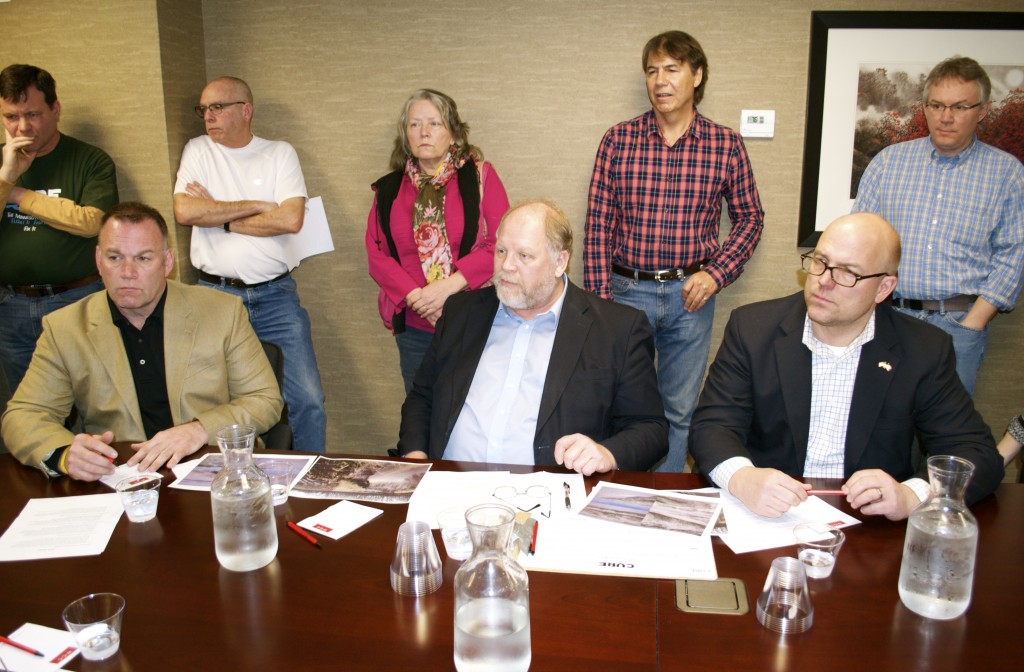Over the past 4 months, the CURE Energy Program has been hard at work organizing support for increasing the state’s Renewable Energy Standard. In February, we brought grassroots supporters from western Minnesota to the state capitol. We invited citizens to town hall meetings with state lawmakers in Morris, Granite Falls, Moorhead, and Willmar. Farmers, business owners, and students spoke in strong support for increasing the Renewable Energy Standard to create jobs and self-reliance for rural Minnesota. Unfortunately, broad citizen support for renewable energy in rural Minnesota has not translated into support from state lawmakers.
A few weeks ago, the Minnesota House Energy Committee passed a regressive industry-written Omnibus Energy Bill, H.F. 843. This bill would sunset the state’s yearly energy savings goal, stifle growth in clean energy, move backwards on commitments to greenhouse gas reductions, and fail to include key components of a responsible Minnesota Clean Energy Plan—increasing the state’s Renewable Energy Standard and yearly energy savings goal. The bill would also repeal Minnesota’s import ban on new coal power, repeal Minnesota’s nuclear moratorium, and effectively eliminate all new rooftop solar.
On April 22, Earth Day, the House’s energy bill made its way to the House floor for a vote. The House passed the bill largely on party lines. A Senate Omnibus Energy Bill will soon come to the floor of the Senate where it will be voted on by that chamber. The House and Senate energy bills will then meet in conference committee later this session. Contrary to the House bill, the current Senate energy bill includes an increase to the Renewable Energy Standard and other pro-clean energy measures. Ultimately, a compromise will need to be made if a final bill is to come out of Conference Committee and eventually land on Governor Dayton’s desk.

In response to the regressive bill passed by the Minnesota House, the CURE energy team has been educating state lawmakers on the benefits of clean energy for greater Minnesota and what will be lost if provisions in the House bill survive. Over the final weeks of the legislative session, we will keep you informed of developments at the state capitol and provide you with opportunities to speak out in favor of Minnesota’s clean energy future.
Blog post by Kristian Nyberg, Energy Program Coordinator.


